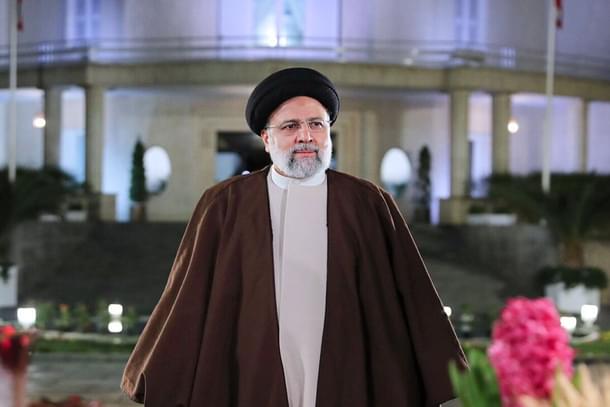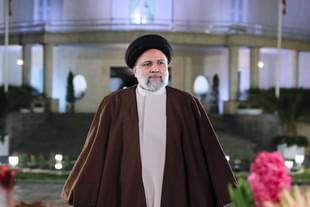News Brief
Iranian President Ebrahim Raisi Visits Pakistan Months After Tehran's Cross-Border Airstrikes In Balochistan: All About It
Kuldeep Negi
Apr 23, 2024, 11:05 AM | Updated 11:05 AM IST
Save & read from anywhere!
Bookmark stories for easy access on any device or the Swarajya app.


Iranian President Ebrahim Raisi's visit to Pakistan, the first by a foreign leader since Pakistan’s controversial 8 February elections, is occurring under the shadow of recent military tensions between the two countries.
The visit, which started on Monday (22 April) in Islamabad, is expected to includes discussions aimed at resolving issues stemming from cross-border skirmishes and the harbouring of militants along their 900 km shared border.
During a joint press conference with Pakistan's Prime Minister Shehbaz Sharif, both leaders expressed intentions to strengthen economic, commercial, and cultural ties, with plans to increase their trade volume to $10 billion.
“We are committed to strengthening relations at high levels. We have decided to increase economic, commercial, and cultural relations between Pakistan and Iran,” Raisi said, Times of India reported.
“We have to keep this relationship strong despite the challenges we face,” Sharif said.
However, the visit is notably marked by the backdrop of mutual air strikes earlier this year.
In January, Iran conducted missile strikes against anti-Iranian militant hideouts in Pakistan’s Balochistan province.
Pakistan retaliated with strikes on bases of anti-Pakistan militants inside Iranian territory, escalating concerns about potential broader regional instability.
These military exchanges have intensified the focus on the two nations' ability to manage their border effectively, plagued by smuggling, unlawful crossings, and militant infiltration.
Both countries have accused each other of failing to control the movement of terrorist organisations across their border.
President Raisi’s visit to Pakistan also coincides with heightened regional tensions following Iran’s recent attack on Israel, involving over 300 drones and missiles.
Kuldeep is Senior Editor (Newsroom) at Swarajya. He tweets at @kaydnegi.





